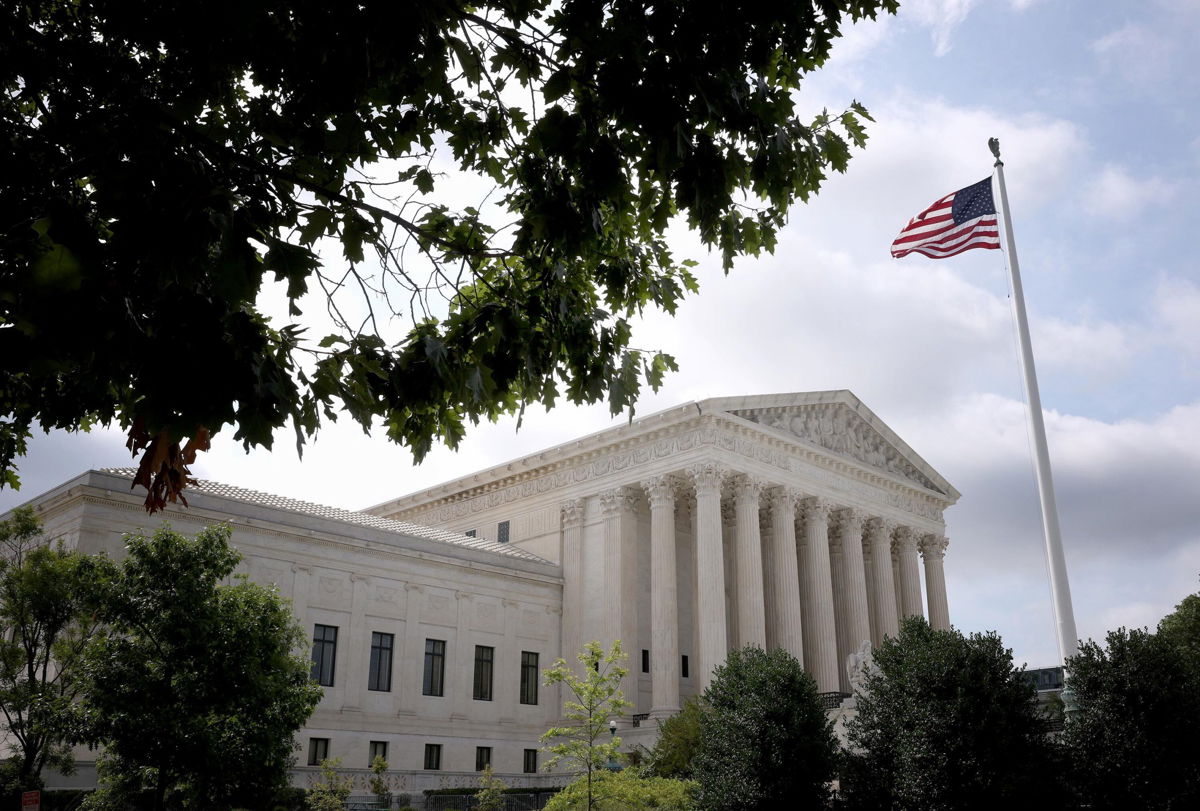Supreme Court order ends congressional Democrats’ attempts to determine if Trump lied in Mueller probe

An order by the US Supreme Court
By Katelyn Polantz, CNN
Congressional Democrats’ years-long attempt to nail down whether then-President Donald Trump lied to special counsel Robert Mueller effectively ended on Friday, with the US Supreme Court wiping away court decisions where the House Judiciary Committee was told it could access secret grand jury records from key witnesses in the Mueller investigation.
The House now won’t get those grand jury records — bringing to a close Democrats’ pursuit of what witnesses in the Mueller investigation said confidentially under oath about their interactions with Trump and others during the 2016 campaign.
Since 2019, the Judiciary Committee had sought access to records from the Mueller investigation’s grand jury proceedings, which were cited in Mueller’s report on Russian interference in the 2016 election. The House had repeatedly said it wanted the records so it could consider whether to impeach Trump for attempting to obstruct the Russia investigation, which Mueller also documented.
But over the past two years, the fight plodded through the court system, with the Justice Department under Trump unsuccessfully arguing to block the release of the grand jury documents. The Supreme Court initially had agreed to hear the case, but then delayed it following Trump’s loss of the presidency in November.
On Friday, the high court vacated earlier rulings. The Justice Department under President Joe Biden wanted this result, saying the case had become moot. The House didn’t oppose the department’s move.
But a top lawyer for the House in June noted the case was ending because Trump was no longer President.
“The Trump Administration succeeded in running out the clock and thereby undermined the ability of the House of Representatives to have access to all of the relevant facts as it considered impeachment,” House General Counsel Douglas Letter wrote in a filing to the Supreme Court. In the future, “the Committee fully trusts that the Justice Department will return to its prior longstanding position and support disclosure at the appropriate time. Any failure to do so would gravely unsettle the separation of powers enshrined in the Constitution and undermine the public’s trust in our system of government.”
Unanswered questions from Mueller
The case’s resolution after Trump’s departure highlights how the Justice Department during Trump’s presidency successfully blocked his political opponents in Congress from gaining key investigative documents.
Mueller had attempted to look at whether Trump had lied to him in the written answers to a set of questions, including about whether Trump had known of his campaign’s interest in WikiLeaks and of releases the site planned in 2016.
Trump said in his written answers he didn’t recall any conversations about WikiLeaks with his political confidant Roger Stone.
Yet Stone lied to Congress about trying to reach WikiLeaks on behalf of the 2016 Trump campaign, and Mueller had asked several witnesses, including during grand jury proceedings, about what Trump knew and when. Dozens of witnesses testified before Mueller’s grand jury, according to CNN reporting, including Trump’s former campaign chairman Paul Manafort and at least two people who attended an infamous Trump Tower meeting in summer 2016. Grand jury records are largely kept secret, except for use at times in judicial proceedings.
The House Judiciary Committee in 2019, under Democratic control, had sued for access to the transcripts of grand jury witness interviews that were cited in Mueller’s final report, believing they could help keep alive threads of the obstruction investigation into Trump even after Mueller closed his prosecutors’ office.
Mueller didn’t charge Trump with any crimes, largely because of Justice Department policy that a sitting president couldn’t be indicted.
Separation of powers
The end of the case at the Supreme Court also leaves unresolved a major separation of powers fight over the secrecy of grand jury information.
The House had also said in 2020 that it still wanted to pursue the records as it considered a second impeachment investigation of Trump — the type of proceeding that lower courts believed was quasi-judicial and worthy of seeing secret grand jury investigation records.
Though Trump was impeached by the House twice during his presidency, the second time for incitement of the January 6 insurrection, Congress never carried through with a full investigation into Mueller’s findings that Trump had taken steps to shut down the Russia probe. Instead, after Mueller testified to Congress that his investigation hadn’t exonerated the President, Democrats shifted their focus to Trump’s attempts to push Ukraine to investigate his 2020 opponent, Biden.
A trial court-level judge had acknowledged in 2019 that the Mueller grand jury records could be relevant to an impeachment investigation in Congress because the House could continue Mueller’s obstruction investigation.
An appeals court had also sided with the House in March 2020, reminding the Justice Department that grand jury records weren’t its to control.
When Trump left the presidency this year, the Mueller-obstruction impeachment inquiry effectively ended.
In a tangential development on Friday, the Justice Department released several letters between Mueller’s investigators and Trump’s lawyers as Mueller had pushed for more answers from the then-President and sought a sit-down interview. Yet Trump’s team held them off. The never-before-seen written exchanges further highlight how Mueller had questions for Trump that have never been answered.
The-CNN-Wire
™ & © 2021 Cable News Network, Inc., a WarnerMedia Company. All rights reserved.
CNN’s Jeremy Herb and Ariane de Vogue contributed to this report.